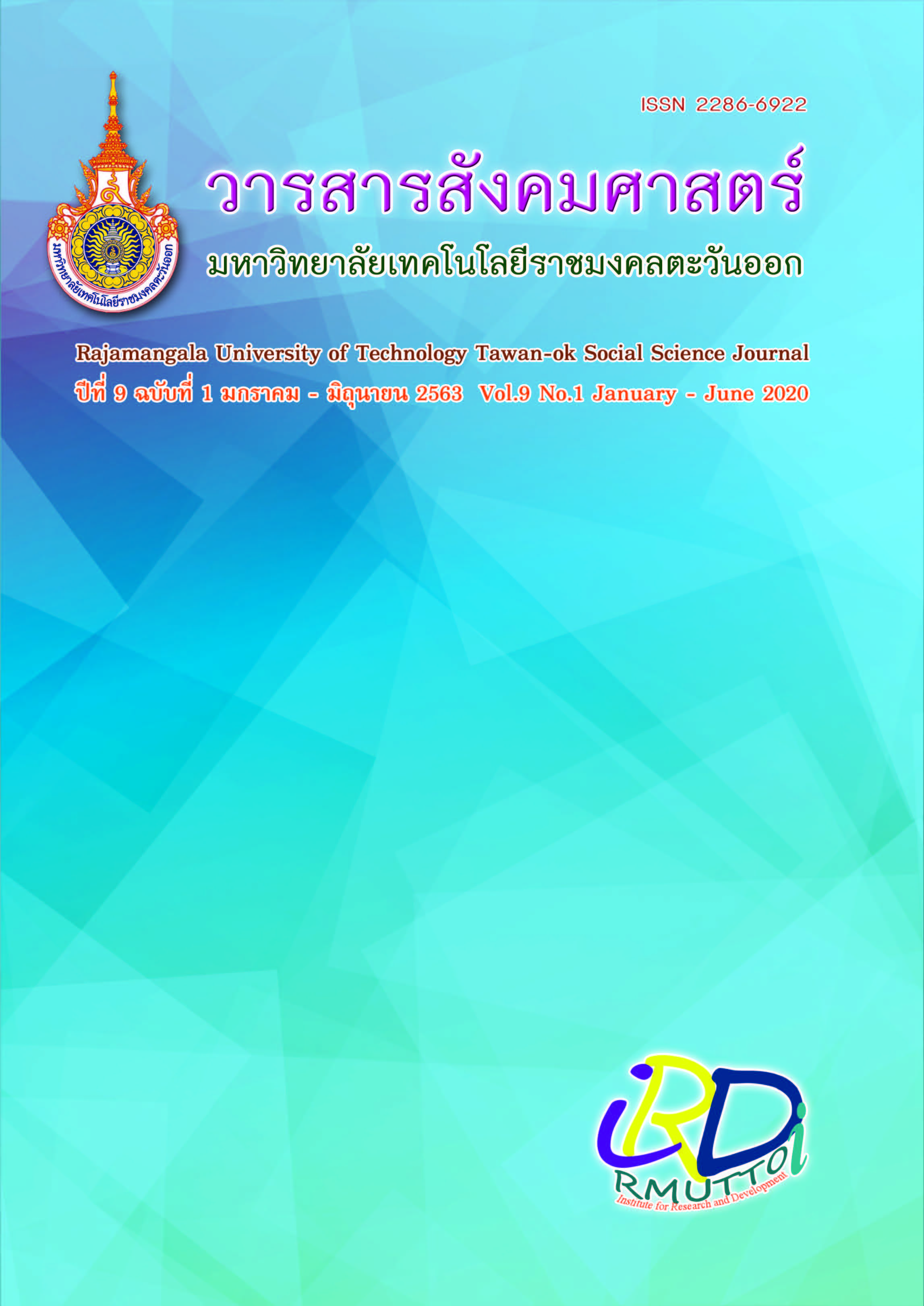ความเข้าใจและการใช้นิติวิทยาศาสตร์ในการสอบสวนคดีอาชญากรรมเฉพาะทาง ของพนักงานสอบสวน
Main Article Content
บทคัดย่อ
วัตถุประสงค์ของการวิจัยในครั้งนี้เพื่อศึกษาความเข้าใจและการใช้นิติวิทยาศาสตร์ในการสอบสวนคดี อาชญากรรมเฉพาะทางของพนกังานสอบสวน โดยทำการศึกษาจากเจ้าหน้าที่ปฎิบัติหน้าทีด้านสืบสวนสอบสวน คดีอาชญากรรมเฉพาะทางของกองบัญชาการตำรวจสอบสวนกลาง จำนวน 230 นาย โดยใช้สอบถามและการสัมภาษณ์ ในหัวข้อทั่วไปทางนิติวิทยาศาสตร์ การวิเคราะห์ข้อมูลส่วนบุคคลของผู้ตอบแบบสอบถามโดยใช้สถิติเชิงพรรณนา (Descriptive statistics) และวิเคราะห์ความสัมพันธ์ระหว่างตัวแปรส่วนบุคคลกับคะแนนระดับความรู้ทางด้าน นิติวิทยาศาสตร ์โดยใช้การวเิคราะห์ความแปรปรวนทางเดียว (one-way ANOVA) ผลจากการศึกษาวิจัยพบว่าเจ้าหน้าที่ ส่วนใหญ่เป็นเพศชาย ร้อยละ 74.2 มีอายุเฉลี่ยอยู่ในช่วง 41 - 50 ปี ร้อยละ 33.3 เจ้าหน้าที่ส่วนมากร้อยละ 69.3 จบการศึกษาสูงสุดระดับปริญญาตรี โดยมีชั้นยศร้อยตำรวจตรีถึงร้อยตำรวจเอก ร้อยละ 60.4 และเกือบครึ่งหนึ่ง ของกลุ่มตัวอย่าง ร้อยละ 47.6 มีประสบการณ์ปฏิบัติงานด้านสืบสวนสอบสวนระหว่าง 5 - 10 ปี ส่วนใหญ่ไม่เคยผ่าน การฝึกอบรมด้านนิติวิทยาศาสตร์ อย่างไรก็ตามจากการศึกษาพบว่ากลุ่มตัวอย่างมีคะแนนเฉลี่ยระดับความรู้ความเข้าใจ ด้านนิติวิทยาศาสตร์อยู่ในระดับปานกลาง (x ̅= 11.95, SD = 1.49) และจากการวิเคราะห์ความแปรปรวน พบว่า ค่าคะแนนเฉลี่ยมีความแตกต่างอย่างมีนัยสำคัญขึ้นอยู่กับอายุและหน่วยงานในสังกัด (P-Value < 0.05) ในขณะที่ เพศ ชั้นยศ อายุราชการ ระดับการศึกษา ประสบการณ์ในการปฏิบัติงานด้านสืบสวน ประสบการณ์การฝึกอบรมด้าน นิติวิทยาศาสตร์ไมมีความสัมพันธ์ทางสถิติกับความรู้ความเข้าใจด้านนิติวิทยาศาสตร์ จากการสัมภาษณ์ในการปฏิบัติงาน ของกลุ่มตัวอย่างร้อยละ 50.7 (114 คน) พบว่าต้องการการจัดอบรมการให้ความรู้ด้านนิติวิทยาศาสตร์ และร้อยละ 64.0 (144 คน) พบว่ามีกำลังพลตำรวจมีไม่เพียงพอ โดยผลการวิจัยครั้งนี้สามารถนำไปประยุกต์ใช้ในการพัฒนางาน ด้านนิติวิทยาศาสตร์ เพื่อเพิ่มประสิทธิภาพการสืบสวนคดีอาชญากรรมเฉพาะทางต่อไป
Article Details
เอกสารอ้างอิง
กองบัญชาการตำรวจสอบสวนกลาง, ก. 2562. ยุทธศาสตร์กองบัญชาการตำรวจสอบสวนกลาง ประจำปีงบประมาณ พ.ศ. 2559-2562.
วันเพ็ญ วิโรจน์เจริญวงศ์, 2556. วันเพ็ญ วิโรจน์เจริญวงศ์. วารสารวิทยาศาสตร์และเทคโนโลยี, 21(6 (พิเศษ)), 565-577.
สรยุทธ์ อ่วมสำอางค์, 2554. ปัญหาและอุปสรรคของพนักงานสอบสวนในการเก็บรวบรวมพยานหลักฐาน ด้านนิติวิทยาศาสตร์ประกอบสำนวนการสอบสวนคดีอาญา : ศึกษาเฉพาะกรณี กองบังคับการตำรวจ นครบาล 1. (ศิลปศาสตรมหาบัณฑิต (การบริหารงานยุติธรรม)), มหาวิทยาลัยธรรมศาสตร์, 362.
Clinard, M. R., Quinney, R., & Wildeman, J. 2014. Criminal behavior systems: A typology: Routledge. [1]Keeratithammakrit, N. 2009. The Integration Knowledge of Forensic Sciences with Criminal Investigations by Police Officer. Mahidol University.
Laeheem, K., & Baka, D. 2009. Risk factors related to youths’ violence behaviors in the three southern border provinces of Thailand. Risk, 15(6).
Noichan, W. 2018. Factors Affecting Motor Vehicle Theft Committed By Inmates In Bangkok Prison. Suan Sunandha Academic and Research Review, 12(1), 1-14.
Vetter, H. J., & Silverman, I. J. 1978. The nature of crime: Saunders Philadelphia.


